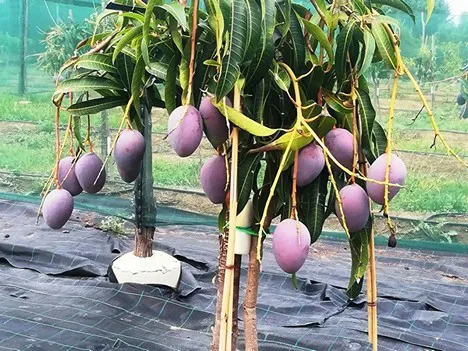Mangoes are a tropical fruit much appreciated for their flavor, appeal and high nutritional value. They are cultivated in over 80 countries worldwide, especially in Asia, with a recent expansion to the Mediterranean area. Over the past few years, there has been an increase in the production along the northern coast of Sicily, where the mild weather creates ideal conditions for the species. However, mangoes are very delicate fruits and they are not easy to grow, as plants tend to die when temperatures near 0°C.
 Vittorio Farina
Vittorio Farina
In addition, mangoes are affected by various post-harvest problems when sold fresh or even as fresh-cut products (i.e. cut, placed in customized packaging and ready to eat). FreshPlaza has talked about it with Vittorino Farina, Professor of Tropical fruit cultivation for the Department of Agricultural, Food and Forestry Sciences (SAAF) at the University of Palermo.
"Good practices are necessary to extend the shelf-life, and 'green' technologies in terms of environmental impact and the genuineness of the product offered to consumers are very popular today. The study (1*) promoted by our Department, carried out together with researchers Roberta Passafiume, Dario Scuderi, Ilenia Tinebra, Gabriele Busetta, Antonino Pirrone, Raimondo Gaglio and Arianna Giorgio, established how vegetable extracts make it possible to obtain a natural coating that prolongs the shelf-life of fresh-cut products thanks to its antimicrobial and antibacterial properties. I am talking about the oil extracted from the Neem plant (Azadirachta indica), which boasts numerous antioxidant, antibacterial and medicinal properties."

"According to what emerged from the data obtained from the physico-chemical, microbiological and sensorial analyses, we can report that there is a positive influence of the polysaccharide-based (HPMC and CaCI2) and Neem oil edible coating on fresh-cut mangoes that does not damage sensorial traits. In fact, while polysaccharide agents in the coating enabled a slowdown of the normal metabolic processes, the Neem oil helped reduce the oxidative processes that facilitates the forming of bacterial colonies. This way, not only is the color of the fruits maintained over time, but the degradation of all nutritional components and of bioactive compounds useful to maintain all organoleptic qualities is prevented. The effects and action mechanisms should anyway be subjected to further studies."
"These are new results for mangoes, which make us presume that this extract is the main one responsible for maintaining post-harvest physico-chemical characteristics. This could constitute ad advantage for both producers, who could thus provide consumers with high-quality fruits even when they do not comply with commercial standards, as well as for the big retail chain thanks to the longer shelf-life."
(1*) Passafiume, R., Tinebra, I., Gaglio, R., Settanni, L., Sortino, G., Allegra, A., & Farina, V. (2022). Fresh-Cut Mangoes: How to Increase Shelf Life by Using Neem Oil Edible Coating. Coatings, 12(5), 664.
For further information:
Prof. Vittorio Farina
Dipartimento Scienze Agrarie, Alimentari e Forestali (SAAF)
Università degli Studi di Palermo
[email protected]
